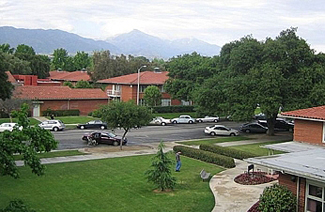2017年3月25日的雅思考试中阅读部分可能考察哪些内容呢?为了帮助大家更好的进行备考,2017年3月25日雅思阅读预测【小范围】,一起来网具体的了解一下吧。
点击》》
点击》》
2017年3月25日雅思阅读预测【小范围】重点阅读题目如下:美国手语,明星员工与企业,新式科技对历史教学的影响,失败与创新,意大利的虐疾,植物纯净水,快乐成因,龙涎香与琥珀,生态旅游,环境问题真相
为了便于大家更好的进行复习,网为大家整理了环境问题真相阅读文章及答案解析,一起来了解一下:
The Truth about the Environment
For many environmentalists, the world seems to be getting worse. They have developed a hit-list of our main fears: that natural resources are running out; that the population is ever growing, leaving less and less to eat; that species are becoming extinct in vast numbers, and that the planet’s air and water are becoming ever more polluted.
But a quick look at the facts shows a different picture. First, energy and other natural resources have become more abundant, not less so, since the book ‘The Limits to Growth’ was published in 1972 by a group of scientists. Second, more food is now produced per head of the world’s population than at any time in history. Fewer people are starving. Third, although species are indeed becoming extinct, only about 0.7% of them are expected to disappear in the next 50 years, not 25-50%, as has so often been predicted. And finally, most forms of environmental pollution either appear to have been exaggerated, or are transient — associated with the early phases of industrialisation and therefore best cured not by restricting economic growth, but by accelerating it. One form of pollution — the release of greenhouse gases that causes global warming — does appear to be a phenomenon that is going to extend well into our future, but its total impact is unlikely to pose a devastating problem. A bigger problem may well turn out to be an inappropriate response to it.
Yet opinion polls suggest that many people nurture the belief that environmental standards are declining and four factors seem to cause this disjunction between perception and reality.
One is the lopsidedness built into scientific research. Scientific funding goes mainly to areas with many problems. That may be wise policy, but it will also create an impression that many more potential problems exist than is the case.
Secondly, environmental groups need to be noticed by the mass media. They also need to keep the money rolling in. Understandably, perhaps, they sometimes overstate their arguments. In 1997, for example, the World Wide Fund for Nature issued a press release entitled: ‘Two thirds of the world’s forests lost forever.’ The truth turns out to be nearer 20%.
Though these groups are run overwhelmingly by selfless folk, they nevertheless share many of the characteristics of other lobby groups. That would matter less if people applied the same degree of scepticism to environmental lobbying as they do to lobby groups in other fields. A trade organisation arguing for, say, weaker pollution controls is instantly seen as self-interested. Yet a green organisation opposing such a weakening is seen as altruistic, even if an impartial view of the controls in question might suggest they are doing more harm than good.
A third source of confusion is the attitude of the media. People are clearly more curious about bad news than good. Newspapers and broadcasters are there to provide what the public wants. That, however, can lead to significant distortions of perception. An example was America’s encounter with El Nino in 1997 and 1998. This climatic phenomenon was accused of wrecking tourism, causing allergies, melting the ski-slopes and causing 22 deaths. However, according to an article in the Bulletin of the American Meteorological Society, the damage it did was estimated at US$4 billion but the benefits amounted to some US$19 billion. These came from higher winter temperatures (which saved an estimated 850 lives, reduced heating costs and diminished spring floods caused by meltwaters).
The fourth factor is poor individual perception. People worry that the endless rise in the amount of stuff everyone throws away will cause the world to run out of places to dispose of waste. Yet, even if America’s trash output continues to rise as it has done in the past, and even if the American population doubles by 2100, all the rubbish America produces through the entire 21st century will still take up only one-12,000th of the area of the entire United States.
So what of global warming? As we know, carbon dioxide emissions are causing the planet to warm. The best estimates are that the temperatures will rise by 2-3℃ in this century, causing considerable problems, at a total cost of US$5,000 billion.
Despite the intuition that something drastic needs to be done about such a costly problem, economic analyses clearly show it will be far more expensive to cut carbon dioxide emissions radically than to pay the costs of adaptation to the increased temperatures. A model by one of the main authors of the United Nations Climate Change Panel shows how an expected temperature increase of 2.1 degrees in 2100 would only be diminished to an increase of 1.9 degrees. Or to put it another way, the temperature increase that the planet would have experienced in 2094 would be postponed to 2100.
So this does not prevent global warming, but merely buys the world six years. Yet the cost of reducing carbon dioxide emissions, for the United States alone, will be higher than the cost of solving the world’s single, most pressing health problem: providing universal access to clean drinking water and sanitation. Such measures would avoid 2 million deaths every year, and prevent half a billion people from becoming seriously ill.
It is crucial that we look at the facts if we want to make the best possible decisions for the future. It may be costly to be overly optimistic — but more costly still to be too pessimistic.
Questions 27-32
Do the following statements agree with the claims of the writer in Reading Passage 3?
In boxes 27-32 on your answer sheet, write
YES if the statement agrees with the writer’s claims
NO if the statement contradicts the writer’s clams
NOT GIVEN if it is impossible to say what the writer thinks about this
27 Environmentalists take a pessimistic view of the world for a number of reasons
28 Data on the Earth’s natural resources has only been collected since 1972.
29 The number of starving people in the world has increased in recent years.
30 Extinct species are being replaced by new species.
31 Some pollution problems have been correctly linked to industrialisation.
32 It would be best to attempt to slow down economic growth.
Questions 33-37
Choose the correct letter, A, B, C or D.
Write your answers in boxes 33-37 on your answer sheet.
33 What aspect of scientific research does the writer express concern about in paragraph 4?
A the need to produce results
B the lack of financial support
C the selection of areas to research
D the desire to solve every research problem
34 The writer quotes from the Worldwide Fund for Nature to illustrate how
A influential the mass media can be.
B effective environmental groups can be.
C the mass media can help groups raise funds.
D environmental groups can exaggerate their claims.
点击》》
点击》》
34 What is the writer’s main point about lobby groups in paragraph 6?
A Some are more active than others.
B Some are better organised than others.
C Some receive more criticism than others.
D Some support more important issues than others.
35 The writer suggests that newspapers print items that are intended to
A educate readers.
B meet their readers’ expectations.
C encourage feedback from readers.
D mislead readers.
36 What does the writer say about America’s waste problem?
A It will increase in line with population growth.
B It is not as important as we have been led to believe.
C It has been reduced through public awareness of the issues.
D It is only significant in certain areas of the country.
Questions 38-40
Complete the summary with the list of words A-I below.
Write the correct letter A-I in boxes 38-40 on your answer sheet.
GLOBAL WARMING
The writer admits that global warming is a 38…………….challenge, but says that it will not have a catastrophic impact on our future, if we deal with it in the 39…………… way. If we try to reduce the levels of greenhouse gases, he believes that it would only have a minimal impact on rising temperatures. He feels it would be better to spend money on the more 40………… health problem of providing the world’s population with clean drinking water.
A unrealistic B agreed C expensive D right
E long-term F usual G surprising H personal
I urgent
以下是本篇文章的答案解析,大家在做完阅读题目后可以来了解一下:
Question 27
答案:YES
关键词:environmentalists
定位原文: 第1段第1、2句 “For many…”
解题思路: hit-list重要事件的列表,按计划迸行杀害的名单。在这里应该理解为一系列。
Question 28
答案: NOT GIVEN
关键词:1972, only
定位原文: 第2段第2句“...“the Limits to Growth”was published in 1972…”
解题思路: 1972年这个信息只在上面这句话中出现,而按照顺序解题原则,这道题目的答案只能在第二段中寻找,实际上该段并未提到任何关于资料搜集开始时间的信息。所以这是一道典型的NOT GIVEN。
Question 29
答案: NO
关键词: starving people
定位原文: 第2段第3句“Fewer people are starving…”
解题思路: 这句话意思非常明确了,和题目表述矛盾。
Question 30
答案: NOT GIVEN
关键词: species
定位原文: 第2段第5句话“Third, although species are indeed…”
解题思路: 这一句虽然提到了物种,但是并没有提到题目中论述的那个话题。而且,题目其实也是在变相地将新旧物种比较,属于并不存在的比较关系,因此应选择NOT GIVEN。
Question 31
答案: YES
关键词: industrialisation
定位原文: 第2段第6句“And finally, most forms…”
解题思路: 这句话说明工业化早期的确引起了一些污染问题,,故此题选YES。
Question 32
答案: NO
关键词: economic growth/best
定位原文: 第2段第6句“...and therefore best cured not by restricting…”
解题思路: 文中已经明确提到控制污染的最好方式不是减慢经济发展速度,而是加速经济发展。
Question 33
答案: C
关键词:paragraph 4
定位原文: 第4段第2句“Scientific funding goes mainly…”
解题思路: 题目问的是作者提出了对哪个科研领域的关注,定位句明确说明这同样也给人们造成了一种印象,似乎存在许多潜在的问题,而事实并非如此,言下之意就是要确认好对研究领域的选择,C选项符合。
Question 34
答案: D
关键词:Worldwide Fund for Nature
定位原文: 第5段第3句“Understandably, perhaps, they sometimes…”
解题思路: 定位句明确说明也许有时候他们夸张了事实,选项D符合。
Question 35
答案: C
关键词:paragraph 6
定位原文:第6段第2句“That would matter less if…”
解题思路:题目问的是作者对游说团体的看法,C选项和原文表述一致。
Question 36
答案: B
关键词:newspaper print
定位原文: 第7段第3句“Newspaper and broadcasters…”
解题思路: 定位句说报纸和广播应该提供给公众所需要的,选项B满足读者需求,和原文表述一致。
Question 37
答案: B
关键词:America
定位原文: 第8段第3句“Yet, even if…”
解题思路: 题目问的是作者对美国垃圾问题的观点是什么,定位句说即便垃圾持续增长,人口增长,整个21世纪美国产生的垃圾只占整个美国面积的12万分之一,言下之意,就是B选项:垃圾问题没有我们想象的严重。
点击》》
点击》》
Question 38
答案: E. long-term
关键词: global warming/a
定位原文: 文章中最后4段内容
解题思路:这里应该填一个表示正面惑情色彩的形容词,而且这个词要可以和challenge搭配。那么选择范围就缩小到了agreed/right/long-term/surprising/urgent五个词上,,然后再根据后半句but来判断,,作者对全球变暖问题的态度是乐观的,显然应该是一个与catastrophic相反的词,因此范围最终缩小到了long-term。
Question 39
答案: D. right
关键词:way
定位原文: 文章最后4段内容
解题思路: 要和way来搭配,修饰way。按照题目中句子的含义来说,就是说以一个比较好的,合理的处理方法,就不会有灾难性的影响,只有right是最符合的。
Question 40
答案: I. urgent
关键词: health problem
定位原文: 倒数第2段第2句“…most pressing…”
解题思路: 这句话中的most pressing指最急迫的,最迫切的,正好和词库中的urgent相对应,属于同义表达。
以上是网为大家分享的2017年3月25日雅思阅读预测【小范围】,大家可以选择性的对以上雅思阅读题目进行练习。
| 2017年3月25日 | ||
| 2017年3月25日雅思大范围预测 | ||
| 2017年3月25日雅思小范围预测 | ||

















